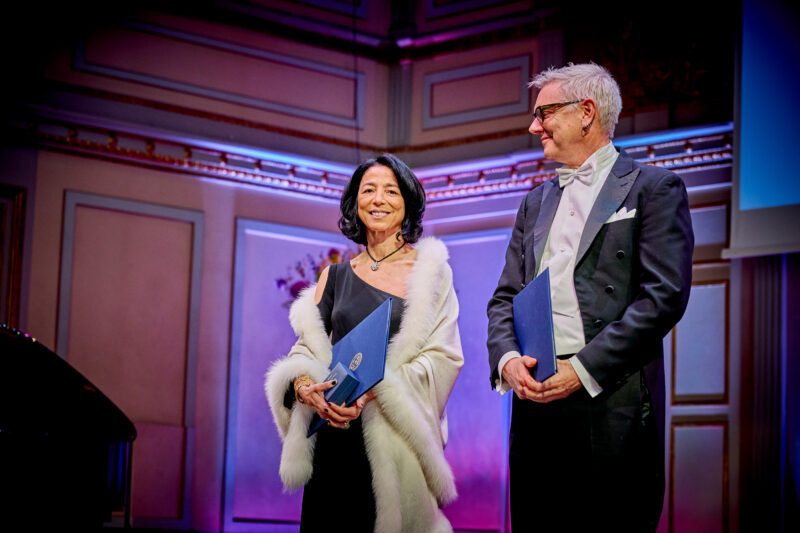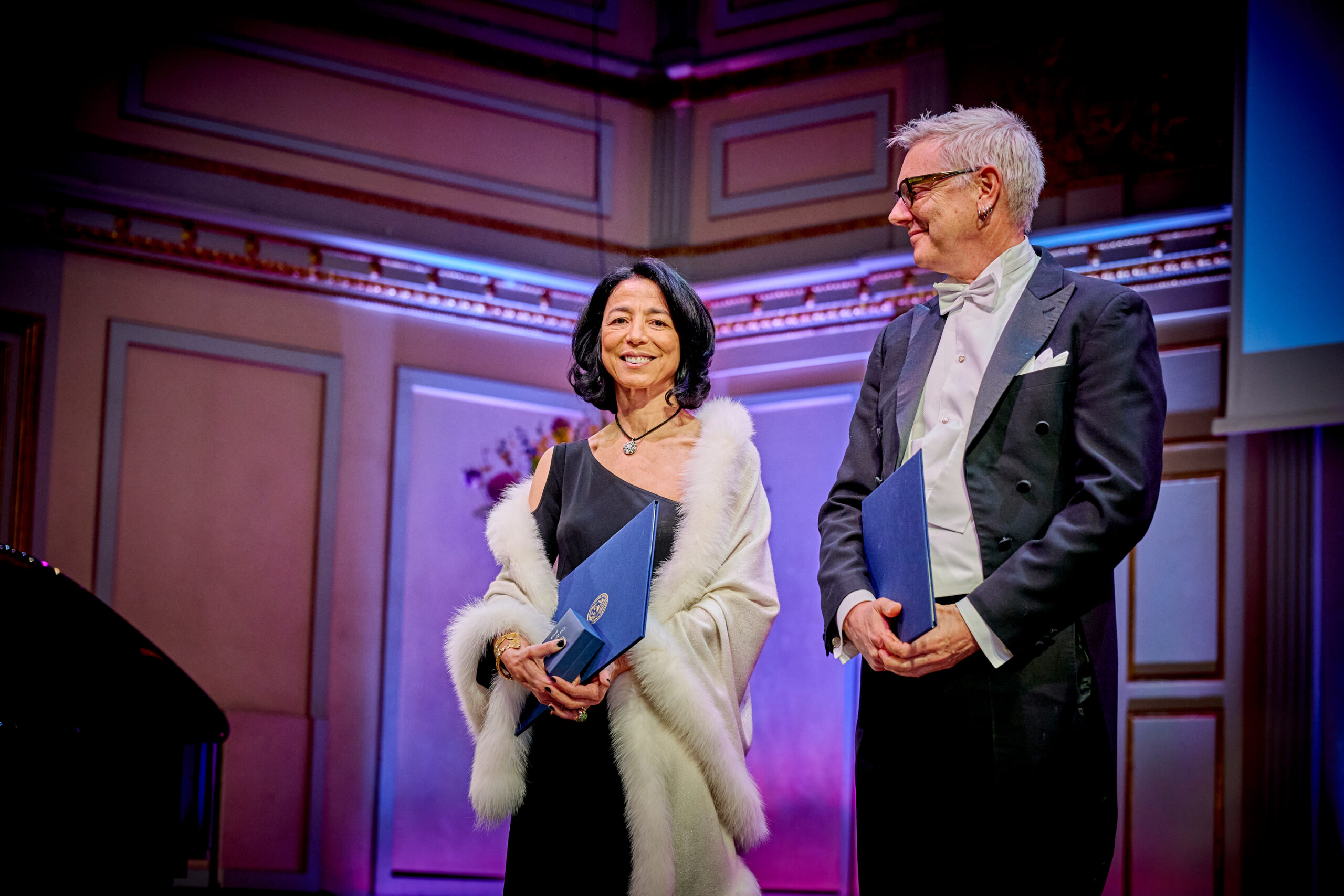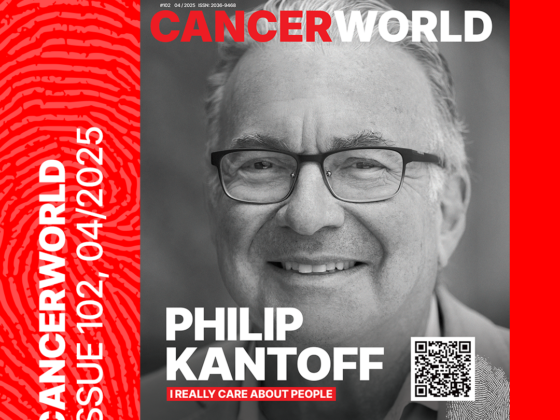Every year, the Sjöberg Prize, established by the Royal Swedish Academy of Sciences, honors researchers whose scientific discoveries in oncology are reshaping the understanding and treatment of cancer. The award stands alongside the most prestigious accolades in science, not only highlighting landmark breakthroughs but fueling ongoing innovation. In 2025, the prize was awarded to Dr. Miriam Merad, whose pioneering work on tissue-resident macrophages has redefined the understanding of cancer immunity. Her research, once met with skepticism, is now at the forefront of cancer treatment strategies. The award comes not only as recognition of past achievements but as a catalyst for her future work, particularly in the emerging field of immunoprevention—a concept that seeks to intercept cancer before it takes hold.
In our in-depth conversation with Dr. Miriam Merad and Urban Lendahl, Secretary of the Sjöberg Prize Committee, we explore the significance of the award, the groundbreaking discoveries that earned Merad this prestigious recognition, their transformative impact on cancer treatment, and the inspiring journey of the scientist behind it all.
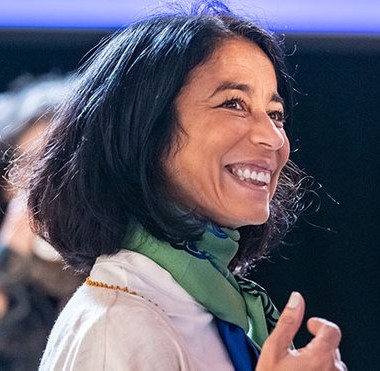
A Journey Shaped by Purpose
Dr. Merad’s journey began in Paris, where she was born to Algerian parents pursuing medical fellowships. Soon after, her family moved to Algeria, a nation rebuilding its healthcare system in the wake of independence. Growing up in this transformative period, she was immersed in an environment where medicine was more than a profession—it was a mission.
“My parents were deeply committed to their work,” Dr. Merad recalls. “They weren’t just doctors; they were rebuilding a country, shaping a future. There was a sense of solidarity, a belief that medicine could truly change lives.”
Spending long hours in the hospitals where her parents worked, she developed an early appreciation for medicine. But it was her exposure to Algeria’s underdeveloped oncology care that left a lasting impression. “Cancer treatment wasn’t a priority in a country focused on managing acute diseases first,” she explains. “I remember visiting an emerging cancer center and feeling heartbroken for the patients.”
Her path toward oncology crystallized during her early medical training. “I started medical school in Algeria, and during my rotations, I spent time in that very cancer center,” she says. “That’s when I knew—I was going to dedicate my life to oncology.”
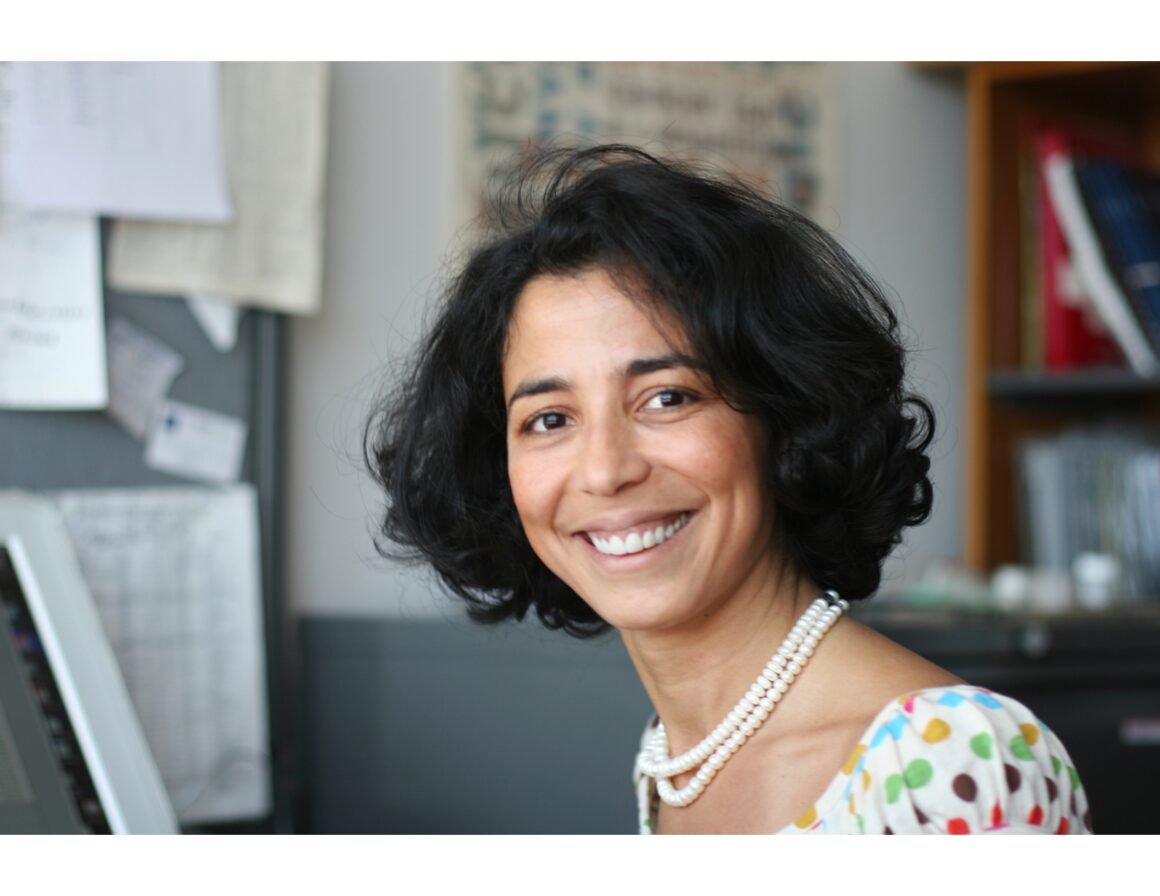
Political instability later forced her to leave Algeria, leading her to France, where she completed her medical studies and embarked on a groundbreaking research career that would span continents. Looking back, she recognizes how those formative years—rooted in resilience, mission, and compassion—became the foundation for the discoveries that would define her career.
The Sjöberg Prize Selection Process
The Sjöberg Prize has rapidly established itself as a beacon for transformative cancer research. Unlike many scientific awards that honor lifetime achievements, the Sjöberg Prize is designed to recognize researchers at the height of their experimental prime—scientists whose discoveries are actively reshaping the field.
“We look for research that has made a real difference,” Prof. Lendahl says. “We want to see breakthroughs that redefine a field, discoveries that future generations of scientists will look back on as pivotal moments in oncology.”
Awarding the Sjöberg Prize is a meticulous process that unfolds over the course of a year. Nominations are solicited from leading cancer researchers worldwide, with a rigorous evaluation system ensuring that the most deserving candidates are recognized.
“We cast a wide net to ensure diversity in geography, expertise, and scientific discipline. Every year, we receive nominations from across the globe, and we take great care to maintain fairness and transparency”, Prof. Lendahl proudly states.
Once nominations are received, a committee of six experts evaluates the candidates, identifying a shortlist of around 5-10 names. External reviewers are then brought in to provide independent assessments, ensuring that no biases influence the decision-making process.
Dr. Merad’s scientific journey and significant discoveries perfectly embody the Prize’s philosophy. Professor Lendahl specifically highlights three pivotal aspects of Merad’s research that led to her recognition.
First is her groundbreaking identification that tissue-resident macrophages arise from embryonic precursors rather than circulating monocytes—a finding that fundamentally challenged prevailing immunological paradigms.
Second, her extensive characterization of macrophages within tumor environments laid crucial groundwork for subsequent research, revealing how these cells can either support or restrict tumor growth.
And finally, Merad’s current research is transforming her foundational findings into tangible clinical innovations. Lendahl underscores this point, noting, “Her ongoing research offers compelling proof-of-concept studies indicating how macrophage manipulation could significantly enhance existing immunotherapies.”
“This was a fundamental discovery in immunology,” concludes Lendahl. “It changed the way we understand the immune microenvironment of tissues, including tumors.”
Bridging Immunology and Oncology
Merad’s research has laid the foundation for novel immunotherapeutic strategies. While immune checkpoint inhibitors and CAR-T therapies have revolutionized cancer treatment by harnessing T-cells, her work highlights the underexplored role of the myeloid arm of the immune system.
“She has been a strong advocate for the myeloid branch of the immune system,” Lendahl emphasizes. “Her recent work shows that macrophages are not passive bystanders but active participants in shaping the tumor microenvironment. By modulating their behavior, we may open new doors for cancer immunotherapy.”
In 2024, Merad published two groundbreaking papers in Nature, demonstrating how targeted manipulation of macrophage signaling pathways—such as interleukin-1 and interleukin-4—could reinvigorate anti-tumor immunity. Early clinical trials have shown promising safety profiles, with some patients exhibiting strong responses.
“We are still in the early days,” Lendahl notes. “But this research has the potential to change how we approach tumors that have traditionally been resistant to T-cell-based therapies.”

A Passion for Oncology: She doesn’t just do science; she lives it.
Dr. Merad’s enthusiasm for oncology is palpable. Her passion is not merely intellectual—it is deeply personal, rooted in years of observation, hands-on research, and an unwavering drive to find better cancer treatments.
When asked about her passion for her work, she simply laughs and responds with an undeniable truth: “I love these cells. That’s true. I love these cells.”
“When you talk to Miriam, you instantly sense her passion,” Lendahl says. “She doesn’t just do science; she lives it. That energy is infectious, and it inspires younger scientists to push the boundaries of what’s possible.”
Her fascination with the immune system’s role in cancer treatment extends beyond scientific curiosity—it is a calling.
“For a long time, immunotherapy was dominated by the focus on T-cells. But I was interested in the cells that educate T-cells—the dendritic cells and macrophages,” she explains. Her groundbreaking discovery that tissue-resident macrophages originate from embryonic precursors rather than circulating monocytes was a paradigm shift in immunology.
Dr. Merad’s passion is evident in her meticulous study of dendritic cells. “Dendritic cells are an extraordinary cell type; which role is to take things and present targets to T cells. They are the ones that really educate in a very potent manner. They take, let’s say, tissue antigen, they migrate to the draining lymph node. And there, they interact with naïve T cells and really build these antigen-specific T cell responses in a way that is very unique.”
She explains how her research has led to a greater understanding of immune system manipulation. “We identify a subset of dendritic cells that are really very good at priming T cells against tumor antigen or against viral antigen. Because they prime specifically what we call CD8 T cells.”
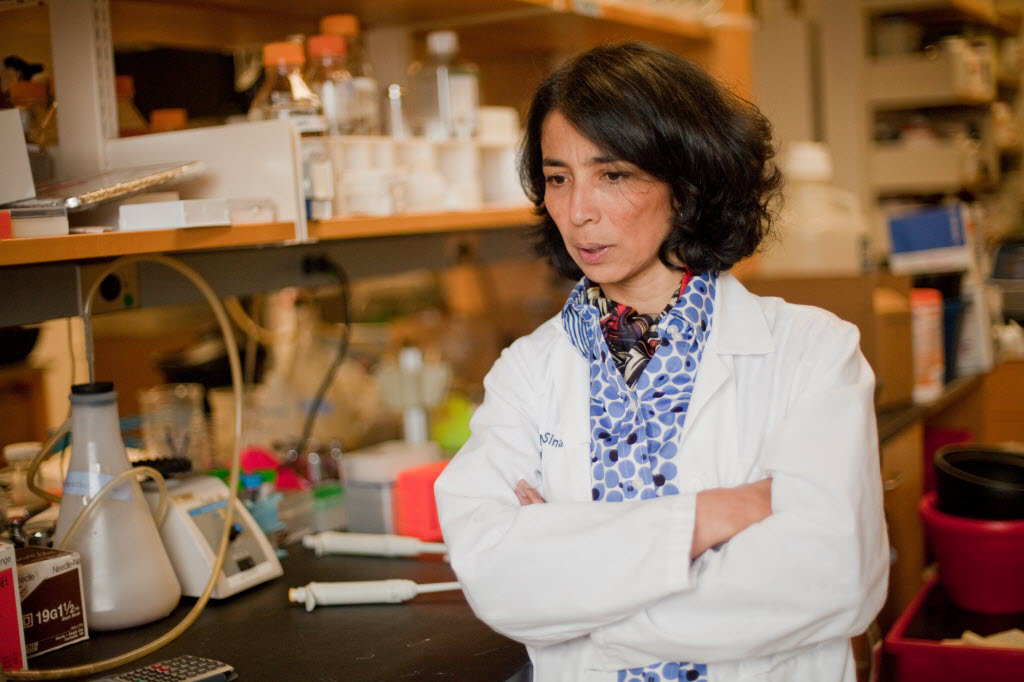
From Lab to Treatment: Bringing Dr. Merad’s Discovery to Clinical Practice
For Dr. Merad, oncology research is not just about discovery but application. Her work has always balanced basic science with clinical translation. At her institute, fundamental discoveries and their practical applications go hand in hand. Many researchers in her lab conduct foundational studies, while others work to bring these insights into clinical trials. This seamless integration, she believes, is a key strength of their approach.
“It happens that at the same time you are discovering some of these basic mechanisms, colleagues of ours are watching and already thinking about how they can translate them,” she explains. The lab’s structure fosters this collaboration, bringing together researchers focused on the most fundamental aspects of macrophage biology and those working on real-world applications.
With this award, Miriam and her team are now positioned to advance prevention strategies, using their deep understanding of macrophages to mitigate early cancer progression. For her, science is not just about discovery—it is about ensuring that these discoveries benefit patients.
“Yes, discoveries happen in labs, but then we need translations to help people benefit from these discoveries,” she reflects. For her, the process of translation is just as crucial as the breakthroughs themselves
Her hope is that this deepened understanding of dendritic cells will lead to more effective immunotherapies. “Many of us are trying to target them in vivo so that they become more numerous—that’s often reduced in the tumor lesions—and more functional.”
As Urban Lendahl states, “Miriam’s meticulous work provided the most comprehensive molecular map of macrophages within the tumor microenvironment, deeply enriching our understanding of their dual roles in tumor biology… Recognizing the distinct embryonic origin and functions of these macrophages means we can now more precisely target them therapeutically. This approach complements existing therapies targeting lymphoid cells, providing a more comprehensive strategy against cancer.”
Dr. Merad’s passion for oncology fuels her relentless pursuit of knowledge. While some researchers may approach their work with a clinical detachment, Dr. Merad embraces every nuance of her discoveries with the excitement of someone who knows their work is changing lives.
The Importance of the Sjöberg Prize to Miriam Merad
Dr. Merad speaks with deep appreciation about receiving the Sjöberg Prize. “I am extremely honored. You know, there is always a big honor to receive a prize, especially a prize, you know, by peers, right?”
For her, the award is not just about personal achievement but about the broader implications for cancer research. “So, your peers recognize the importance of your work. What I’m very excited about is that I think this prize also recognizes the role of myeloid cells, macrophages, and dendritic cells in cancer treatment.”
She emphasizes how this recognition marks a shift in the field. “This was not the case, you know, when I started. This was not the case even 10 years ago. And now I think that recognition is important.”
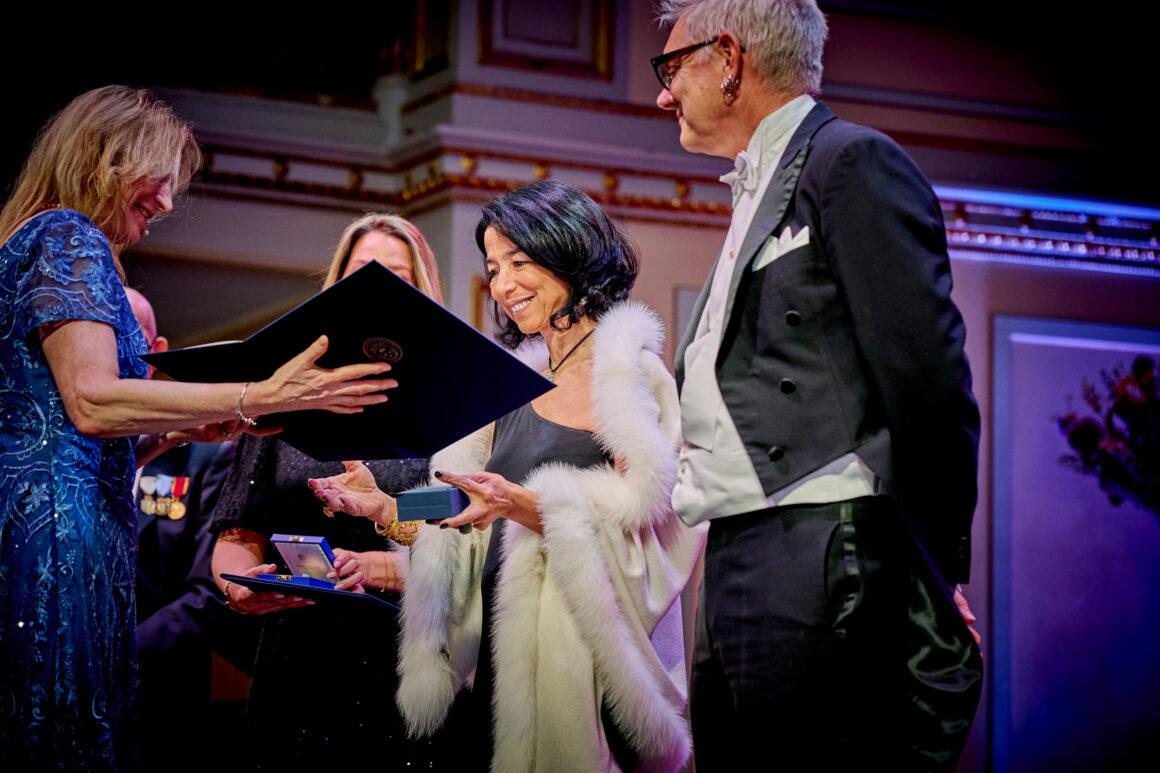
Beyond honoring her individual contributions, the prize validates an entire area of research. “It’s important for my field because it’s important for macrophage biologists and for cancer immunologists that are interested in macrophages.”
Dr. Merad hopes the award will serve as motivation for future research. “This would encourage more people also to work on these questions. So, I think it is influential. It’s sending a signal that macrophage biology matters in cancer treatment.”
Her gratitude to the Royal Swedish Academy of Sciences is evident. “And for this, I am particularly grateful for the Royal Swedish Academy of Science and, you know, for their recognition.” With the funding secured, Dr. Merad sees the award as a catalyst for the next phase of her work. “So, I am even more grateful, you know, also extremely grateful for the support that I now have to engage into another new area, new focus and new focus of ours.”
Her excitement is clear—this is not just recognition for past work but an investment in the future.
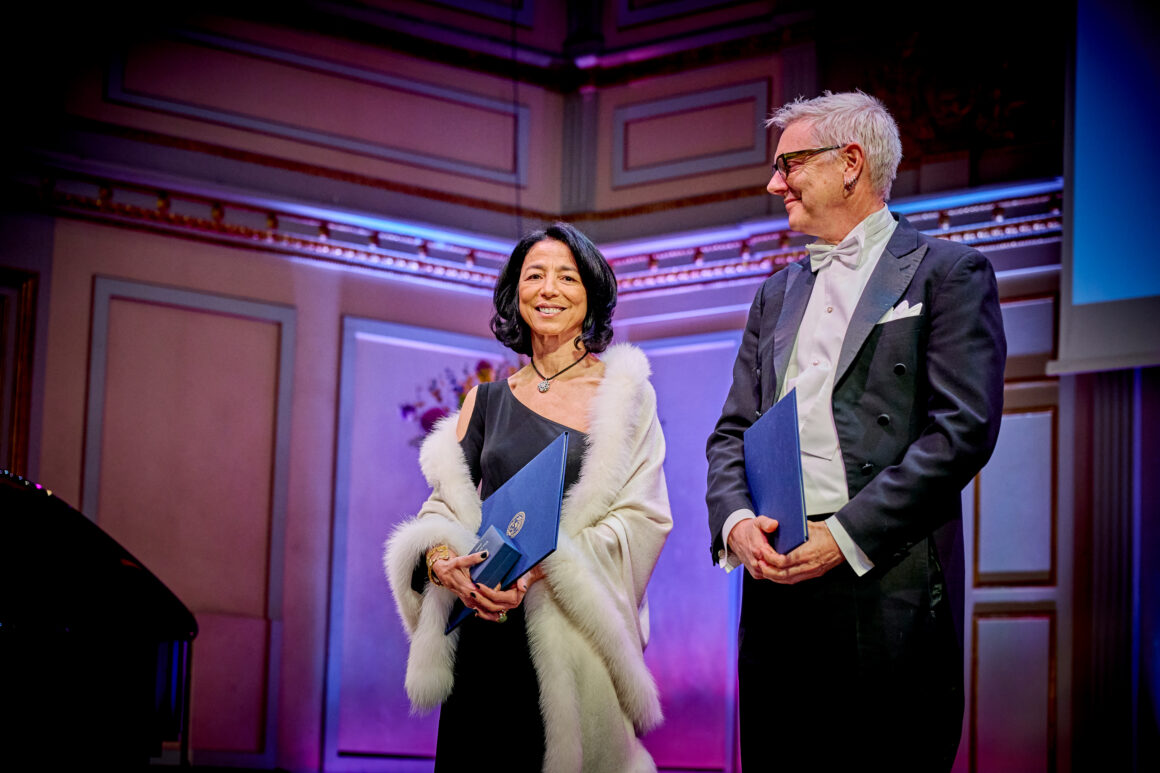
Challenges and Triumphs: Merad’s Journey as a Woman in Science
While her professional accomplishments are extraordinary, Merad’s path was not without challenges. Acknowledging barriers faced by women scientists, Merad candidly shares her experiences juggling family life and an ambitious scientific career. She emphasizes resilience, transparent communication, and community support as keys to her success.
“Well, yes, there are challenges. You know, I have the habit of never emphasizing the challenges,” Dr. Merad acknowledges.
She reflects on the primary struggle many women scientists face: balancing career and family. “Women, especially when they become mothers or partners, often grapple with work-life balance. The expectation that mothers should be more at home than fathers still persists,” she explains. “I think that women have this sensibility for their kids that is sometimes more developed than in fathers. Being able to do both well—I found it difficult.”
To address these challenges, Dr. Merad has openly shared her experiences. “I wrote a piece called Reflections of a Mother Scientist in Nature Medicine. There, I talk about all the guilt I felt—guilty for not spending enough time with my kids, guilty for not spending enough time in the lab. But in the end, my kids don’t even remember me working so hard. They tell me, ‘You were so present in my life.”
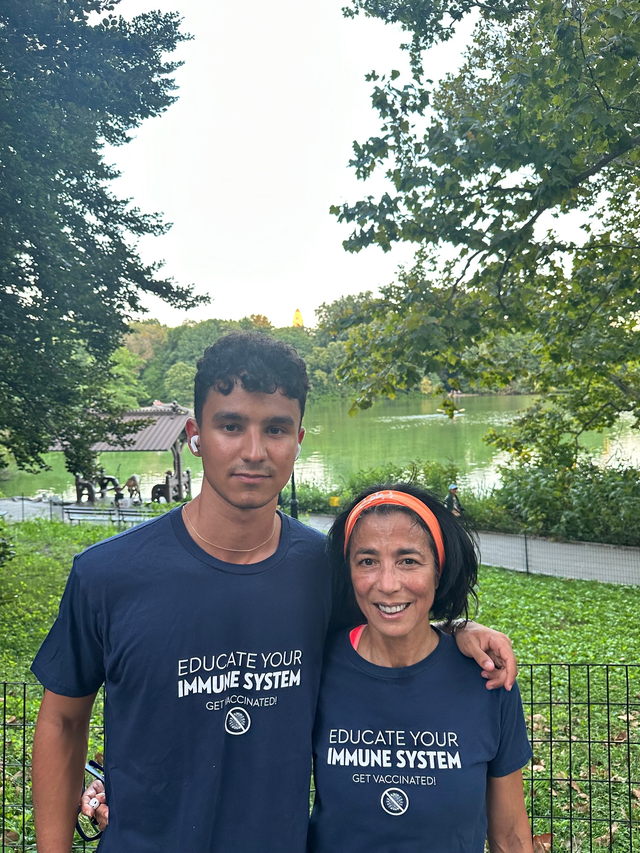
At work, Dr. Merad has been fortunate to find enablers. “I don’t think I encountered many challenges, but my dean once told me, ‘It’s not possible that you didn’t.’ And maybe he was right—maybe there were derogatory comments, maybe I was the only woman in the room and didn’t have the codes. But I just ignored it. I never engage in battles that are useless. I fight only when it’s worth it.”
Reflecting on Merad’s experiences, Lendahl acknowledges the importance of highlighting such stories. “Miriam’s journey is inspiring not only scientifically but personally. Her transparency about navigating challenges provides invaluable lessons to emerging researchers, especially women who might face similar barriers.”
Dr. Merad hopes that the progress made for women in science will not be undone. “We have achieved so many wins, and I hope we don’t lose them,” she states. She then proudly adds, “And I will be very happy to fight for women who are striving to find their path in medicine, in science, and in society.”
About Prof. Urban Lendahl: A Steward of Scientific Excellence
Urban Lendahl, chair of genetics at the Karolinska Institute, has had a distinguished career dedicated primarily to cancer research. With a PhD from Karolinska and postdoctoral experience at MIT, Lendahl quickly rose through the academic ranks, securing early tenure and remaining loyal to Karolinska Institute. His research centers on the Notch signaling pathway, investigating its role across various cancers, including breast and lung cancer.
“Technically I’m working on a signaling pathway called the Notch pathway,” Lendahl explains. “We try to understand what Notch does when it’s mutated or sort of erroneously expressed in different cancer forms.”
His extensive expertise positioned him effectively for leadership roles in prize committees, notably serving as secretary for the Nobel Prize for Medicine and leading the Nobel Committee. Reflecting on his current role, Lendahl shares: “This is my third round, third year as a secretary for the Sjöberg Prize. It’s been fun and a privilege to work together with the Royal Society in Sweden for science.”
As Secretary of the Sjöberg Prize Committee, his responsibilities encompass coordinating global nominations, structuring evaluations, ensuring procedural integrity, and overseeing communication with global stakeholders.

